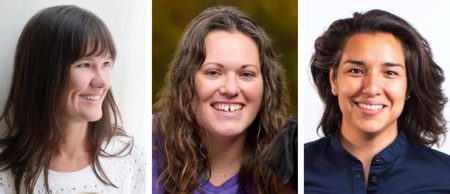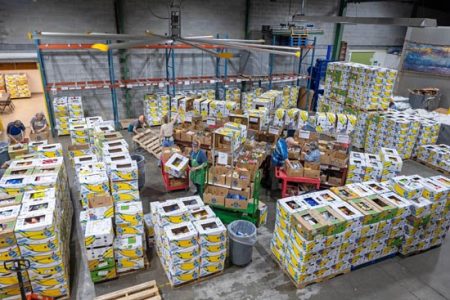Project NAF: Advocacy and Information through Mentoring
 |
| Belinda Grant, Executive Director of NAF. Photo: Urban News |
“There is not a single book on earth that is completely understood by just one person. Every one of us comes to the printed page with prior knowledge and experiences, with different viewpoints and biases, with different insights and blind-spots. Though we can “comprehend” text the first time we read it, deeper comprehension is more likely to occur when we discuss our readings with others.”
~ Kelly Gallagher, “Deeper Reading: Comprehending Challenging Texts”
Think about all the things you have learned over the course of your life. Many of those skills, ideas and bits of wisdom have stuck with you and remain dear to your heart because of how you felt and feel about the person you learned them from. Have you ever had a Mentor? What did you learn? How did that mentor (role model, tutor, etc.,) impact your life?
Mentor, according to the American Heritage Dictionary, means “a
wise and trusted counselor or teacher” and has Greek root meaning of
“steadfast and enduring.” The Greek poet Homer first coined the word
“mentor” in his epic poem, The Odyssey.
A great warrior, Odysseus, knowing he was to be away from his
home for many years on a journey to fight in the Trojan War, chose and
entrusted the care of his kingdom to a man named Mentor. Mentor was to
be the guardian , tutor and overseer of his son, Telemachus.
Mentoring is not simply a nice, touchy-good-feeling kind of
gesture, but a social and moral obligation to pass on to others
necessary skills and understandings, and to learn from them in a
mutually respected and supportive relationship and environment.
In many professions it is not uncommon for a new employee to be
placed under the care of an established and seasoned staff person. This
established staff person is often charged with the task of helping to
train, advise, and share practical experience with the new staff person
in the organization. This process is commonly known as mentoring, and
the professional who is responsible for the care and nurture of the
newcomer is referred to as a mentor.
The role of the mentor is multi-faceted. A mentor is a coach,
cheerleader, guide, tutor, facilitator, counselor and trusted advisor. A
mentor is someone willing to spend his or her time and expertise to
guide the development of another person. A mentee is a student, protégé,
apprentice and eager learner. A mentee is someone who wants to learn
from someone and seeks their valuable advice in order to grow personally
and/or professionally.
A mentorship is a relationship formed between a mentor and mentee
with the goal of sharing knowledge and expertise between the mentor and
the mentee. It can be a formal relationship with written goals and
scheduled meeting times or it can be as informal as an occasional chat
or email exchange.
Mentoring is the concept behind Project NAF’s initiative AIM,
(Advocacy & Information through Mentoring). Through this service,
program participants will receive additional support and assistance
through the development of a mentoring network from African-American
community leaders. On Saturday, July 31, 2010, a training workshop was
held to launch this new program initiative. The room was filled with
excitement as community leaders shared their ideas insight and expertise
in implementing this plan.
 |
| Mentors with Mount Zion Community Development, Inc. Project NAF Program & Staff. 1st row (L-R): Letitia Bromell-Ross, Project EMPOWER Outreach Worker, Anne White, Shaneka Simmons, Shari Smith, Project NAF Outreach Worker, and Belinda K. Grant, Executive Director. 2nd row: April Stewart, Lorraine King, Treva Williams, and Dionne L. Terrell. 3rd row: Nanci Farmer and Shelva Davis-Burt. Photo: MZCD |
Through AIM, mentors will meet with program participants once per
month to provide advocacy and support and will assist Program
Participants:
• In the completion of an Empowerment Plan by setting short and long
term goals, and providing a feasible course of action that is relevant
to the situation
• In providing education about the importance of breastfeeding
• In identifying positive things in their lives, concentrating on
their strengths and using these strengths as a framework to help
identify and overcome areas for growth
• In providing resource options in reaching personal and professional goals, and
• In conveying “hope” advocacy and support.
By sharing what you have learned with other women desiring to
follow in your footsteps, you are doing a tremendous service to future
generations of women. You are raising the bar on what women can
accomplish in the workplace and you are letting everyone know that there
are plenty of intelligent and strong, yet caring and supportive, women
out there. You are furthering the status of women both in the local
community and around the world by taking the time to share your wisdom
with someone else. What about you, are you willing to make a difference
and share your time, knowledge and expertise with a Project NAF
participant?
For more information, please contact Belinda K. Grant or Shari Smith at (828) 225-8155. 47 Eagle Street, Asheville, NC 28801.
Email: [email protected]
Website: www.mtzionasheville.org
Project NAF extends heartfelt thanks to the Department of Health
& Human Service’s Healthy Beginnings Project, the Office of Minority
Health & Health Disparities, and Buncombe County for funding the
Project NAF Program.







